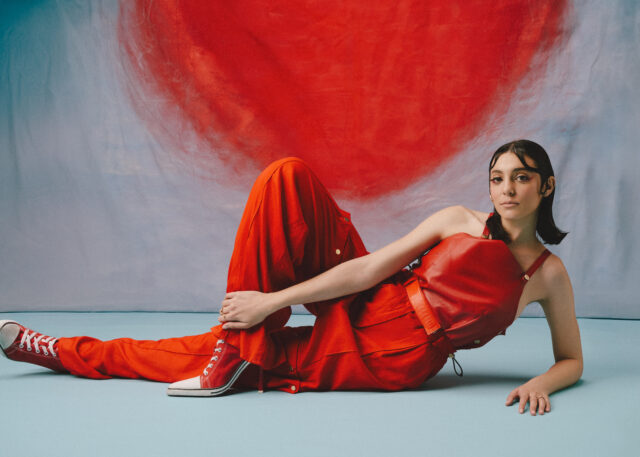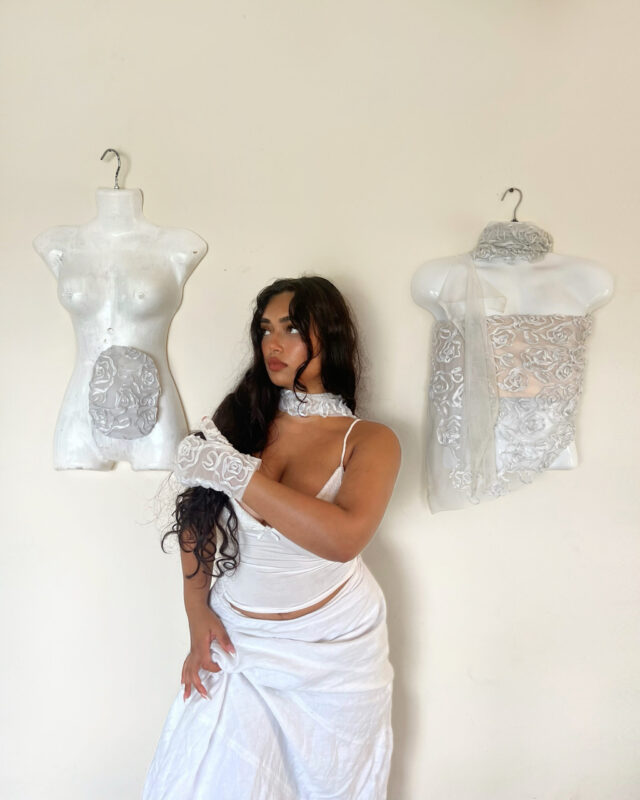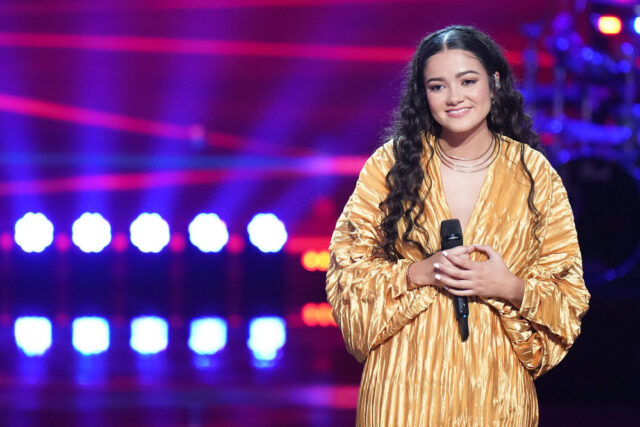INTERVIEW: Darrell Britt-Gibson on All Things ‘Judas and the Black Messiah,’ His Role as Bobby Rush, Inclusivity, and His Upcoming Films and Projects
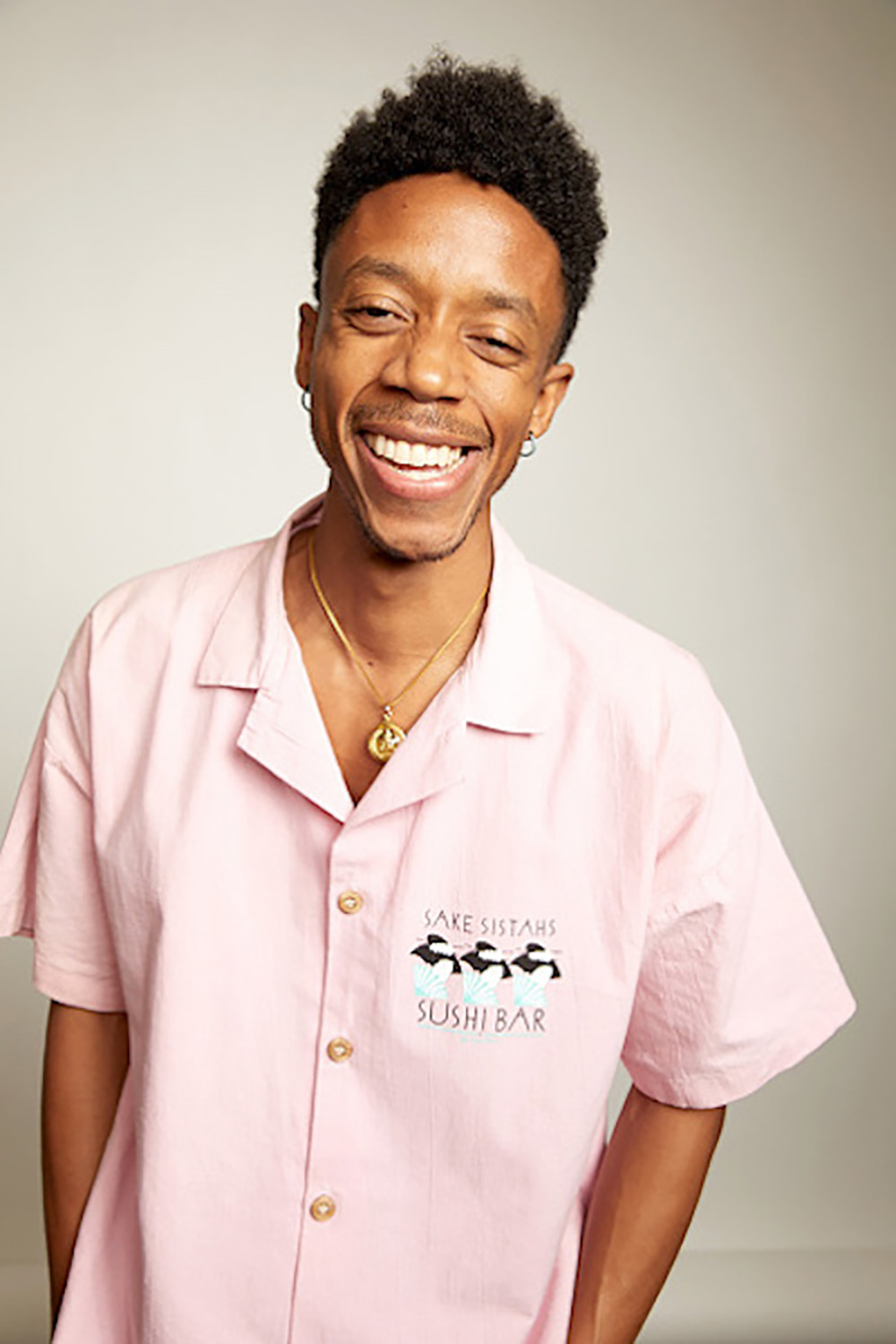
Darrell Brit-Gibson stars as Bobby Rush in the new film Judas and the Black Messiah, which was released in theaters and on HBO Max, February 12. Written and directed by Shaka King, the film tells the story of Fred Hampton, the Chairman of the Chicago Black Panther Party, and how he was targeted by the FBI, which led to his untimely death.
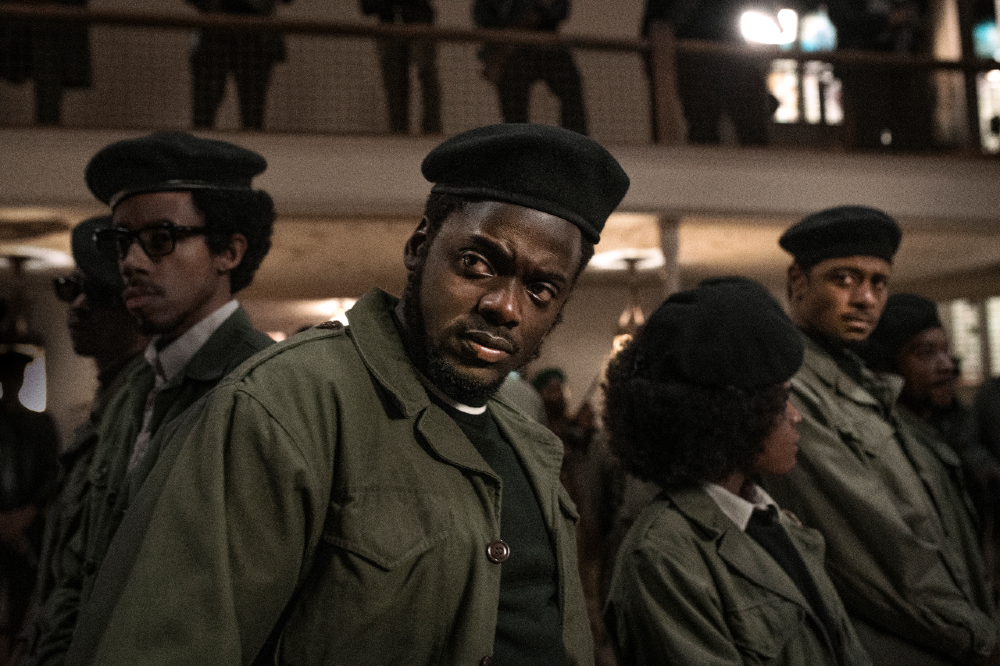
Darrell who is known for his roles in Three Billboards Outside Ebbing, Missouri, Keanu, Barry, and 20th Century Women, stars opposite Daniel Kaluuya (Hampton), as well as LaKeith Stanfield, playing FBI informant William O’Neal, who infiltrates the Illinois Black Panther Party.
Glitter chatted with Darrell on his role, how he prepared for the film, how the story resonates with him on Black Lives Matter’s current progress, and what’s next for him, including new films and projects. Read on for more.
GLITTER: What can you tell us about your character, Bobby Rush?
DARRELL: Bobby Rush was one of the co-founders of the Illinois chapter of the Black Panther Party. He was also the Deputy Minister of Defense. He was Fred’s right hand, and he was only 23 years old when Fred was assassinated. When you start doing your research on him, you’re watching videos and reading as much as you can. It just always hits you in your chest when you find out how young they all were and how they were able to accomplish so much at such a young age. Every time I talk about it, I get emotional because you just think about it like, “Wow, what was I doing when I was twenty-one?” So yeah, Deputy Minister of Defense and one of the co-founders of the Illinois chapter, which you see in the film.

GLITTER: Can you tell me more or elaborate on why films like Judas and the Black Messiah are important to you?
DARRELL: There’s a litany of reasons, but I think the biggest one is that the information that we have on the Black Panther Party doesn’t exist in the books that we read growing up, and that is by design. You know, they have sort of been wiped from the books that we read, so I’m so thankful and blessed to my beautiful parents who educated me on the Panther Party growing up because if I left it up to school, I wouldn’t know anything about them. This is just such an important story to be telling at this moment. There are so many parallels to today in the fight that we continue to be on. I mean, 52 years ago, Chairman Fred Hampton was assassinated in his sleep, minding his own business. Just last year, Brianna Taylor was assassinated in her sleep, minding our own business. In both cases, there was no justice. So we have come a long way, but how far have we really come? You know? Because it just seems that every step forward we take, I feel like we take 100 steps back. It’s not by our doing; it’s by the powers that be. It’s high time that stories like this happen. But more importantly, that they create the conversation that can lead to tangible change because it’s one thing to create the conversation. I think we keep having a conversation, but we really want a tangible change. So hopefully, this is a film that can sort of ignite that spark that could possibly, you know, make that happen.

GLITTER: Do you have any favorite scenes from the movie?
DARRELL: Wow. You know, it’s so incredibly shot by Sean Bobbitt and our director, Shaka King, who is a visionary. So there are just so many scenes. I think a scene that I really enjoy is the scene where Deb and Chairman are just in the bed just talking, and they’re just smiling, you know? It showed the innocence of these 20-year-old and 18-year-old kids who are tasked with such obligation to the community, but it was just such a beautiful moment that you don’t really get to see in film that I thought was so important to have in there. It’s something that every time I watch it, it makes my heart smile because it’s like you have to remember that they are people too, and truly incredible human beings. You are also just are like, “Wow, they’re kids.” So that scene always hits me in my heart. I mean, there are so many scenes, his speech for one, the “I’m a Revolutionary Speech” in the church. I remember when we filmed that I had my back turned and he did it once. The first time he did it, Daniel did it, and then he walked away. I remember thinking to him; I had chills all over my body. They were like, “Do you want to see any of it?” I was like, “Absolutely not. I want to see it when everybody sees it,” because it’s just one of the greatest things you’ll ever see on screen. It’s truly a transformative moment for Daniel. It’s just, it’s out of this world.
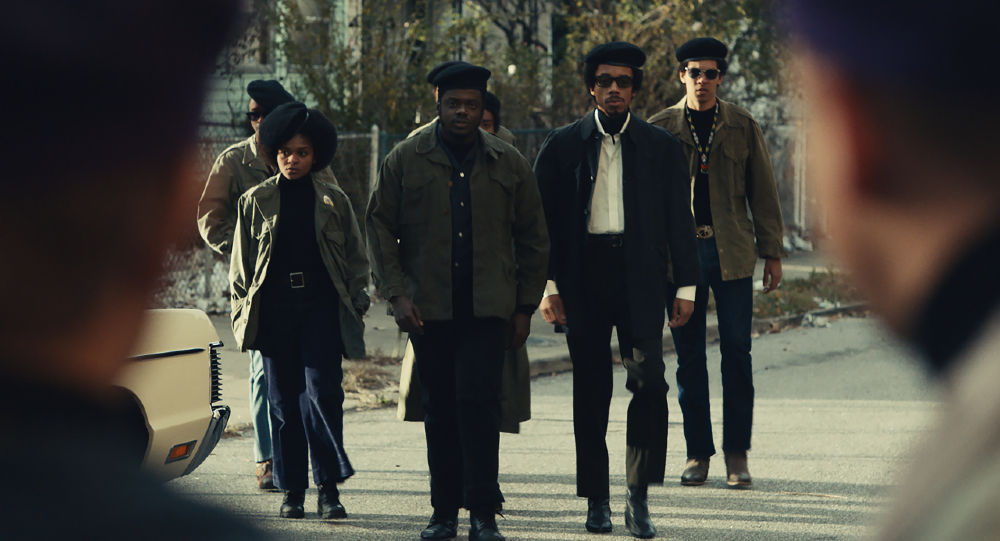
GLITTER: What was it like working alongside Daniel and Lakeith?
DARRELL: An absolute joy; I think I said earlier in the interview that the term people say, “It’s like almost like working with family.” Family, the word gets thrown around very loosely, but this genuinely was a family where we are a family and will be a family for the rest of our lives. But you see Daniel and LaKeith; it is a trickle-down effect, right? The captain of the ship is Shaka but you have Daniel and LaKeith, who are just so extraordinary as actors. To watch both of these men transform themselves and give themselves to every second, they were on set is inspirational. I learned a lot from them about how you can give everything you have to this thing and also still stay connected to the people that you are working with and understanding the community aspect of it. So working with Daniel and LaKeith was an absolute joy and one of my favorite experiences ever in this town because they truly are supernovas. When actors get the opportunity to work with them, I hope they run to that because they’re just special. They are just special, and we need to protect them at all costs.
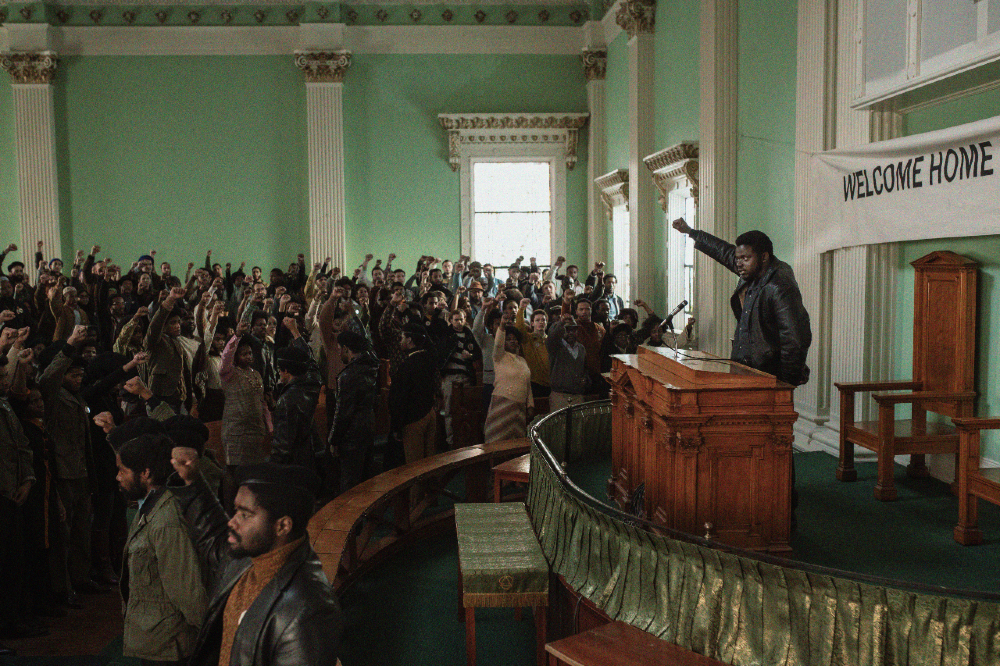
GLITTER: How did you grow after this project as an actor and an artist?
DARRELL: I absolutely grew. I’d say that I left this film with scars from it, that I’m glad will never go away because I need to always be reminded of what this experience meant for me. I feel as though I became a man on this set because there was such an obligation that comes with being chosen to be a vessel and to be seen to be telling this story. There’s just such a tremendous responsibility. It’s almost one of those, “You can’t go back now,” to what you were before and what I was before filming this as an actor and as an artist. It’s hard to say what it was because I’m so now embedded in what I am now since. But I do know that I wake up every day thinking about this film and thinking about what it means to be a part of something that is so much bigger than being an individual. It’s something that has stayed with me from the second I wrapped to this very moment in this conversation, and that will continue on. I’m so happy that it did and that I got to be a part of it because it’s just so much bigger than me. So I absolutely am changed, but I’m absolutely changed for the better.
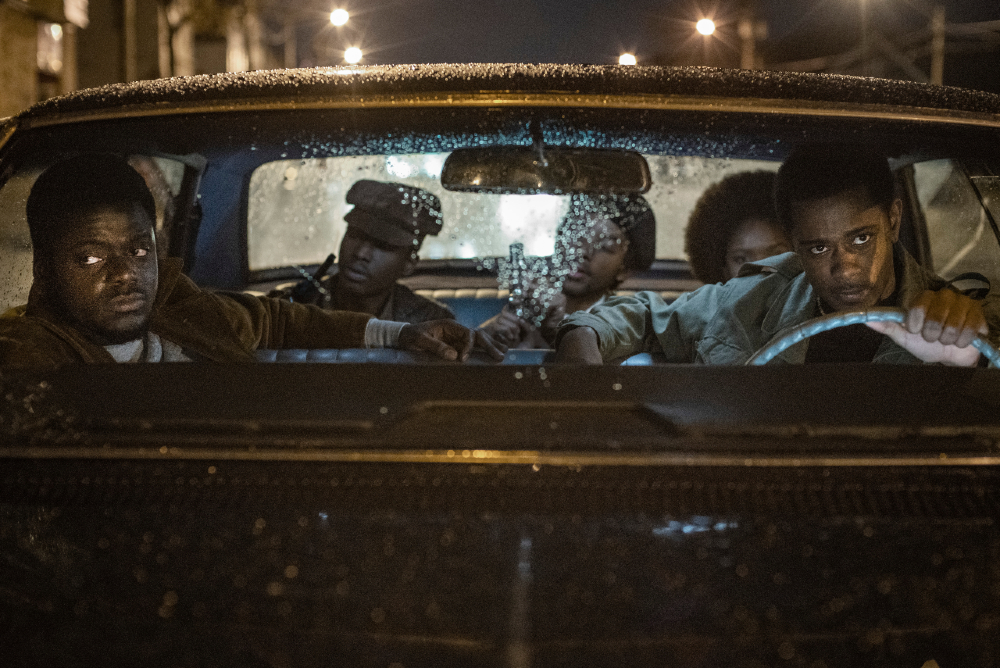
GLITTER: You touched on some of the things happening today and how they resonate with the film. How does the film resonate for you with the current Black Lives Matter movement?
DARRELL: Wow, you know, in the summer of 2020, I went to as many marches and protests as I could and felt so empowered. It’s weird I get emotional, even thinking about it because you’re sitting out there and marching in the street with these people, but you’re marching with people who look like you, and then people don’t look like you, and that is what Chairman was preaching, unity, you know? Everyone being on the front line and everybody that this fight for real equality, it does not look like one person, one individual. It looks like a collective of people. So I think I’ve heard a lot of people speak about this idea that there are two Americas and there are not two Americas. There’s one America where black and brown people are not treated fairly. And I think that if we keep saying that there are two Americas, it’s allowing people to hide behind the idea that, well, I’m a part of this good America and let’s forget about this other America. No, we need to address the fact that we live in this one America that does not treat people who look like myself and you fairly and justly. So with the movement, I hope that this film inspires and continues to inspire because I saw the next generation out there. You know, you’ve got kids from five years old to 80 years old out there on the streets fighting and fighting. And it’s like I just want to hope and pray that it was not a moment. That this is the continuation of the movement because it doesn’t stop just because a pandemic ends. And whenever it does, and that doesn’t mean that this stops. This is actually just the beginning. I think that some beautiful strides were taken this past summer, but we’ve got a long way to go. I hope that this film sort of pushes that along because it’s time for some tangible change and not just conversation.
GLITTER: Can you tell us what’s next for you?
DARRELL: What’s next? I have a film coming out on February 19 called Silk Road, the story of Ross Ulbricht, who started selling drugs on the dark web. A lot of people don’t know about it, but it’s actually an extremely fascinating story. So I’ve got that coming out. Then I have the Fear Street trilogy that will be coming out in the summer for Netflix, which is an R. L. Stein group of books, young adult books. That’s incredible. Then I wrote a film that we’re going to get off the ground this year called Molly and Frank, which is a love story that just so happens to be, you know, two black leads. So we’re trying to change the narrative in Hollywood that you can’t just love us for our trauma; you need to love us for our everything.
Be sure to stream Judas and the Black Messiah on HBO Max.
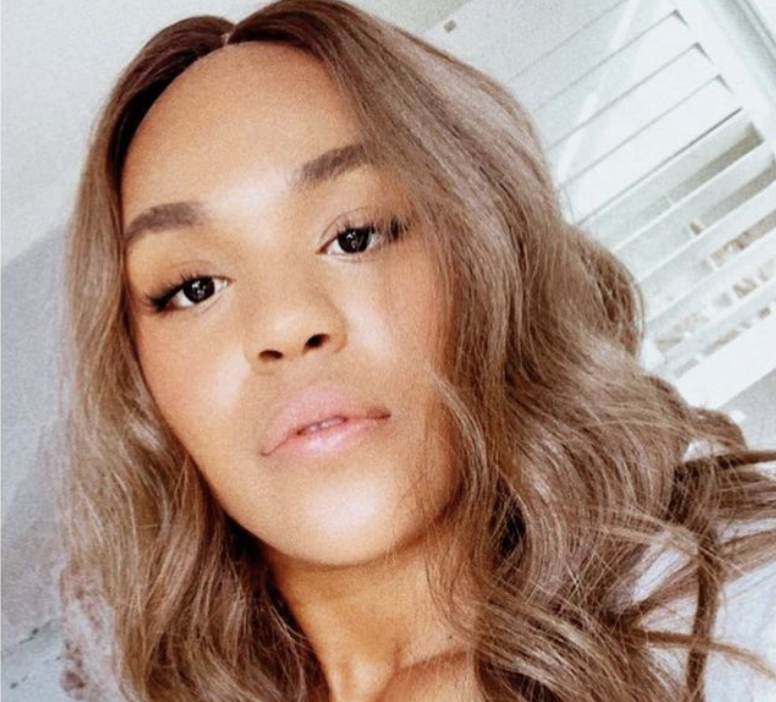
Glitter Co-Founder | Writer | Journalist | Host | Tweet me @zoefowler28

